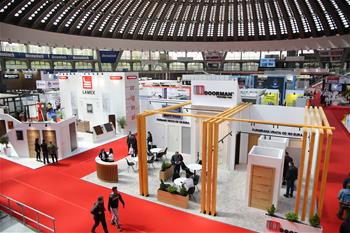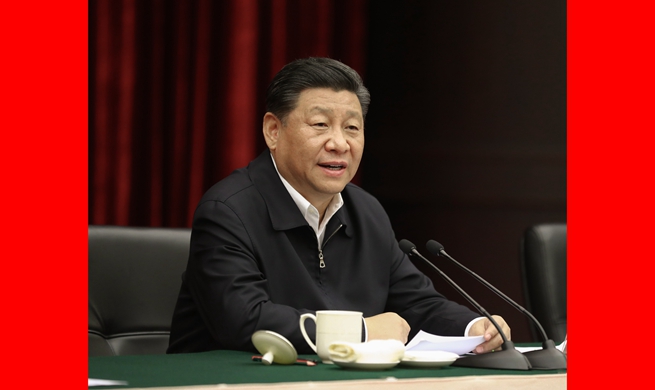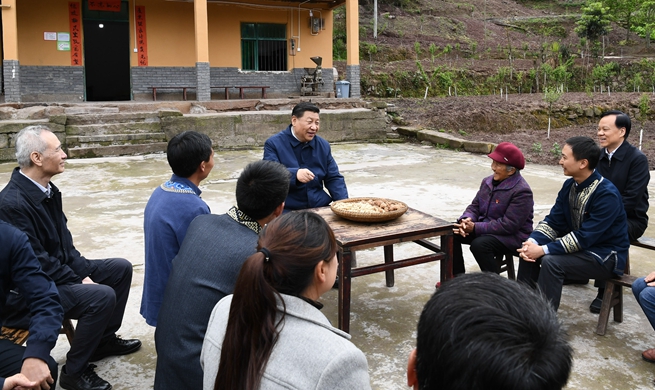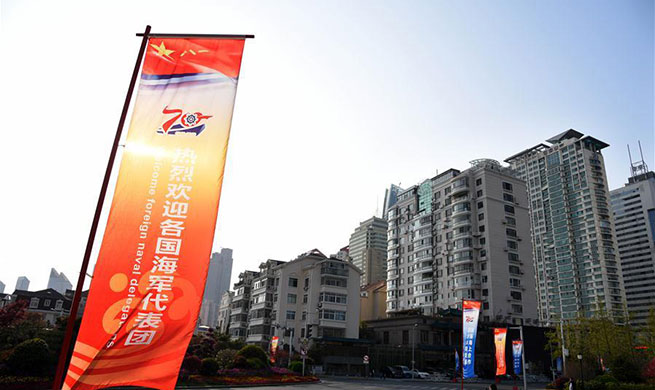BEIJING, April 18 (Xinhua) -- Chinese scientists have developed an innovative desalination technology that uses rice straw and sunlight for clean water production.
Solar steam generation is considered a promising strategy for purification of wastewater and seawater. Scientists from the Ningbo Institute of Materials Technology and Engineering have developed a solar steam-generation device from wasted rice straw.
The device is composed of a photothermal membrane and water pumps. Rice straw leaves are carbonized and composited with bacterial cellulose to function as a photothermal membrane and the lower culms of straw are designed as water pumps.
The solar rice straw-derived desalination achieves a daily clean water yield of 6.4 to 7.9 kg per square meter on sunny days and 4.6 to 5.6 kg on cloudy days. The water yielded reached safe drinking water standards with over 99.9 percent of saline ions removed.
Besides seawater desalination, the device can also be used for extracting clean water from various water-bearing areas such as tidal flats, wetlands and marshes.
The research was published in the journal ACS Applied Materials and Interfaces.
As fresh water scarcity is one of the most compelling global concerns, scientists are exploring innovative desalination technologies to increase water productivity and bring down the overall desalination cost.
According to Liu Fu, the leading researcher, there is a great need to reduce energy consumption in desalination technology and solar-driven steam generation has attracted wide attention.
"As green and inexhaustible energy, solar energy can be harnessed in desalination and water purification, leading to low-cost and sustainable technologies that address the water crisis worldwide," Liu said.
To utilize solar energy, solar thermal materials are needed. Since it is complex and costly to prepare traditional solar thermal materials such as plasmonic materials, carbon nanotubes and graphene-based materials, they are not suitable for large-scale applications.
Liu's team explores new materials and new engineering designs to improve the efficiency of solar thermal conversion and reduce the cost of desalination.
Stepping out of the lab, learning from nature, he found rice straw was the most suitable candidate for photothermal desalination, as it possesses a high transpiration coefficient and a superior water delivery capability through its culms.
China has an abundance of rice straw. Chinese farmers traditionally burn straw after harvest, which causes air pollution and has been banned in many places.
"If this agricultural waste can be used for extracting clean water, it will be an environmentally friendly and sustainable technology," Liu said.
The technique can be used in remote islands or mountainous regions lacking water. It can be used during emergencies such as floods, earthquakes and severe environments such as in the wilderness for obtaining clean water, according to the team.
Liu's team is also researching other solar thermal materials, which are expected to be commercialized in large-scale desalination projects in three years.
An expert in solar-thermal desalination, Professor Zhu Jia from Nanjing University said the research was a new and creative exploration in using solar energy to desalinate sea water.
"By using rice straw as solar thermal materials, the cost for desalination can be further reduced," Zhu said.

















